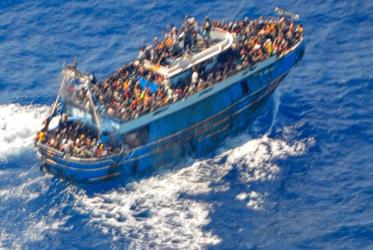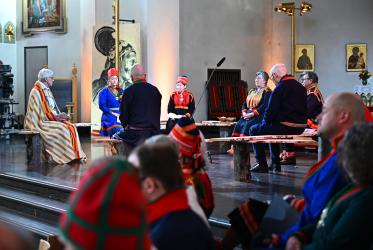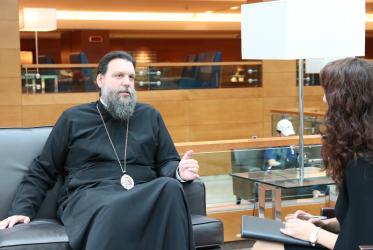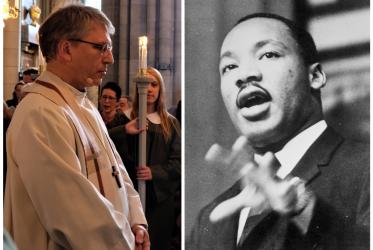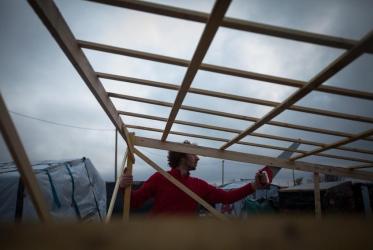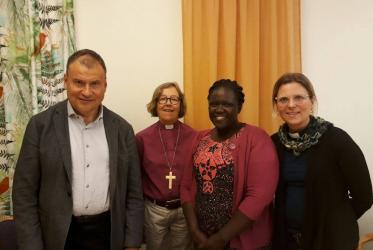Displaying 1 - 20 of 42
Church of Sweden apologizes to Sámi people, this time in Sápmi
27 October 2022
In a COVID-stricken world, “everyone is important”
23 October 2020
Plans for 11th WCC Assembly build excitement across the globe
18 February 2020
Markus Imhoof film receives human rights award
10 October 2019
Fr Alexi - a peacemaker in Syria
21 December 2018
#WCC70: Children in the Ecumenical Movement
20 December 2018
WCC president for Europe: “Develop local dialogue”
22 October 2018
Catholics, WCC map future together after papal visit to Geneva
05 September 2018
Conference explores Christian approach to borders
05 October 2017
Nordic churches embrace 'The Gift of Being'
15 September 2017
